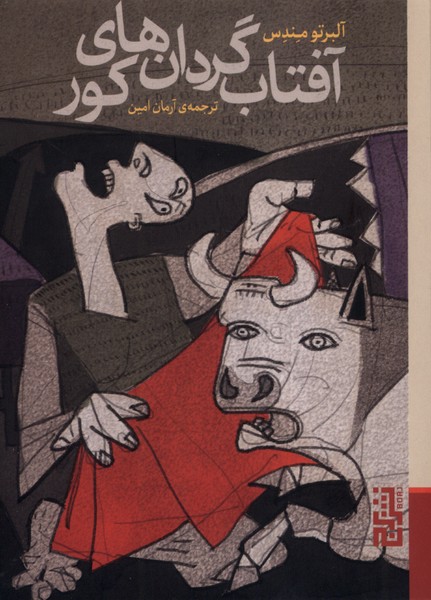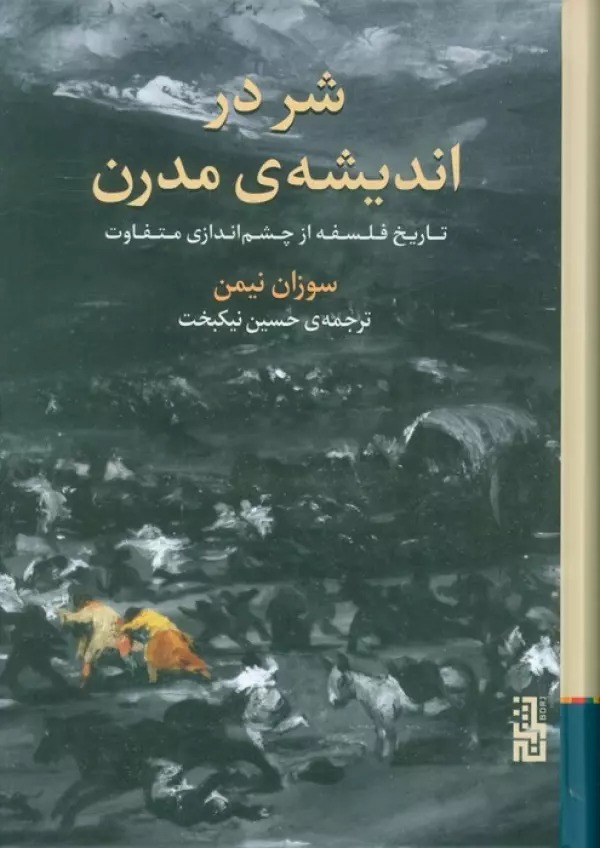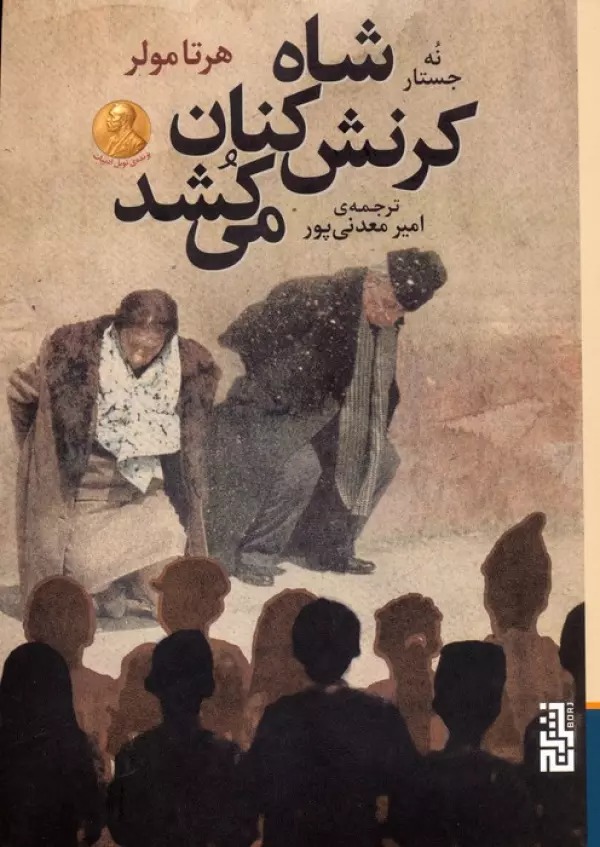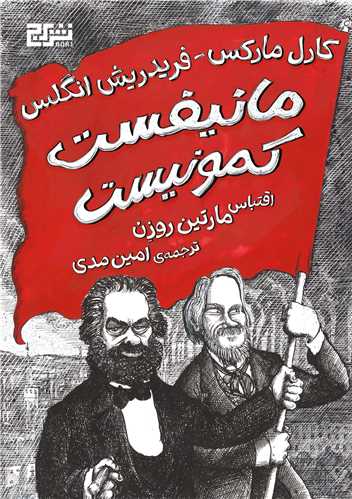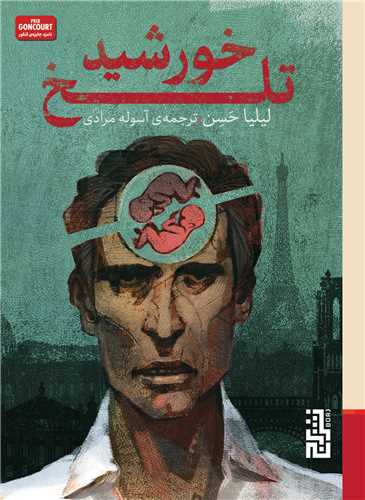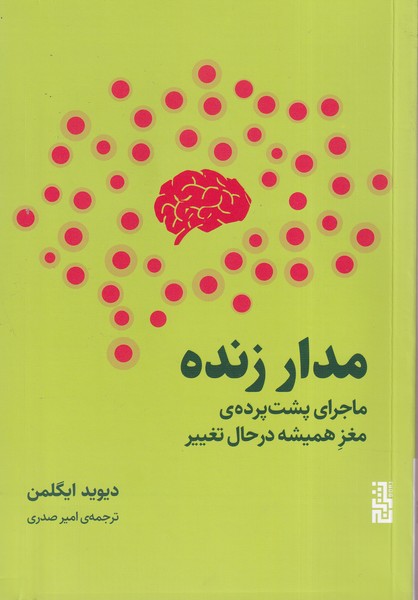Dars giriftan az ālmānī'hā: Persian 1401
درس گرفتن از آلمانیها
20.33 £
Share
Wishlist
Original Title:
Learning from the Germans: Race and the Memory of Evil
ISBN:
9786227280821
Translator:
Muḥammad muṣṭafá Bayāt
Publisher:
Burj
Age Group:
Adult
Pages:
600
Weight:
594 g
Dimensions:
14 x 21 x 6.5 cm
Book Cover:
Hard Cover
It is true that the neo-Nazis, their support adds more and more delusional German blood to German society every day, however, their efforts and pure experience to overcome the mind and spirit of Nazism during the decades after the Second World War cannot be considered among the greatest achievements of modern man. Looking at this society, right after the fall of the Third Reich, we see the internal and multifaceted conflict of individuals and nations who bear a large part of the blame for World War II and at the same time are immersed in a deep sense of innocence. German adherence to the exemplary national spirit that, during the reign of Nazism, according to Karl Jaspers, created a "good conscience drowned in evil deeds" and at the same time reminded us of the fact that again according to Jaspers' idea, we can say: "... commitment to the fatherland, a depth much greater than obedience It is blind to the rule of time. A fatherland is no longer a fatherland when its soul is destroyed. These and the fact that they are always called Nazis, make the German society not a support to pass fascism, but an accurate example to watch and touch. Germany, which fought in a purified union, was defeated, split into two, and united after the Berlin Wall, accurately shows us the experience of understanding horror and horror after the fall of horror. Considering the necessity of learning from the Germans, Susan Nieman recovers the experience of a white Jewish woman born in the south of the United States in the path of race and the memory of evil. "There's an old saying that says if I'm Catholic and I live in the South, I'll find heart. If I am a Jew, I will pack my belongings. If I am black, I will go"; This author's quote at the beginning of the book is from a relative of "Emmett Till", a black teenager from Chicago who was lynched in a horrible way on August 28, 1955, when he went to visit his friends in Mississippi! This is an example that clarifies how being an American has always been immersed in the aura of a caste and racial society. The book "Learning from the Germans; The Memory of Evil and the Problem of Race" took the narratives of Nieman's experience of birth and life in the racially segregated South of America to his reflections on Nazi Germany and after, and in a proper return, the American slave before and after the civil war and the legal abolition of slavery in a conversation with the German after It places the Reich and after the Cold War, and of course, considering all the uses and abuses of historical comparison.
more
درست است که نئونازیها یارگیریشان هر روز متوهمان خون اصیل ژرمن بیشتری را به جامعهی آلمانی اضافه میکند، با اینهمه نمیتوان تلاش و تجربهی ناب آنها را برای عبور از ذهن و روح نازیسم طی دهههای پس از جنگ دوم را در زمرهی بزرگترین دستاوردهای انسان مدرن قرار نداد. با نگاه به این جامعه، درست در لحظهی پساز سقوط رایش سوم، درگیری درونی و چندوجهی فرد فرد ملتی را میبینیم که بخش بزرگی از تقصیر جنگ دوم جهانی را به دوش میکشند و درعینحال در حس عمیقی از بیتقصیری و بیگناهی نیز غوطهورند. پایبندی آلمانی با عرق ملی مثالزدنی که در هنگامهی سلطهی نازیسم بهزعم کارل یاسپرس «وجدانی نیک غرق در اعمال شر» را ساخت و همزمان یادآوری این نکته که باز به انگارهی یاسپرس میتوان گفت: «… تعهد در قبال سرزمین پدری، ژرفایی بهمراتب بیشتر از اطاعت کورکورانه در قبال حاکمیت زمانه دارد. سرزمین پدری دیگر سرزمین پدری نیست، هنگامیکه روحش ویرانشده باشد.» همینها و همزمان خطاب شدن همیشه با برچسب نازیست، جامعهی آلمانی را نه در مقام تکیهگاه برای عبور از فاشیسم، بلکه نمونهای دقیق برای تماشا و لمس، پیش رویمان میگذارند. آلمانی که در اتحادی خالصشده جنگید، شکست خورد، دو شقه شد و پس از دیوار برلین متحد شد، تجربهی فهم وحشت و وحشت پس از سقوط وحشت را دقیق نشانمان میدهد. سوزان نیمن ازهمینرو با نظر به الزام درس گرفتن از آلمانیها، تجربهی خود زن سفیدپوست یهودی متولد جنوب ایالات متحده را در مسیر نژاد و خاطرهی شر، بازیابی میکند. «مثلی قدیمی هست که میگویداگر من کاتولیک باشم و در جنوب زندگی کنم، دلشوره پیدا میکنم. اگر یهودی باشم، اسباب و اثاث خود را جمع میکنم. اگر سیاهچوست باشم میروم.»؛ این نقل نویسنده در آغاز کتاب از زبان یکی از بستگان «امت تیل»، نوجوان سیاهپوست اهل شیکاگوست که در 28 اوت 1955 هنگامی که برای دیدن آشنایانش به میسیسیپی رفته بود، به شکل دهشتناکی لینچ شد! مثلی که روشن میکند چگونه آمریکاییبودن همواره در هالهای از جامعهای کاستی و نژادی غوطهور بوده است. کتاب «درس گرفتن از آلمانیها؛ خاطرهی شرّ و مسئلهی نژاد» روایتهای تجربهی نیمن از تولد و زندگی در جنوب تفکیکنژادیشدهی آمریکا را به تأملاتش در آلمان نازیسم و پسازآن برده و در رفتوبرگشتی درست، آمریکایی بردهار را پیش و پس از جنگ داخلی و الغای قانونی بردهداری در گفتوگویی با آلمانی پس از رایش و پس از جنگ سرد قرار میدهد و البته با نظر به همهی استفادهها و سواستفادهی مقایسهی تاریخی.
more







